News
Making Friends – New Edition!
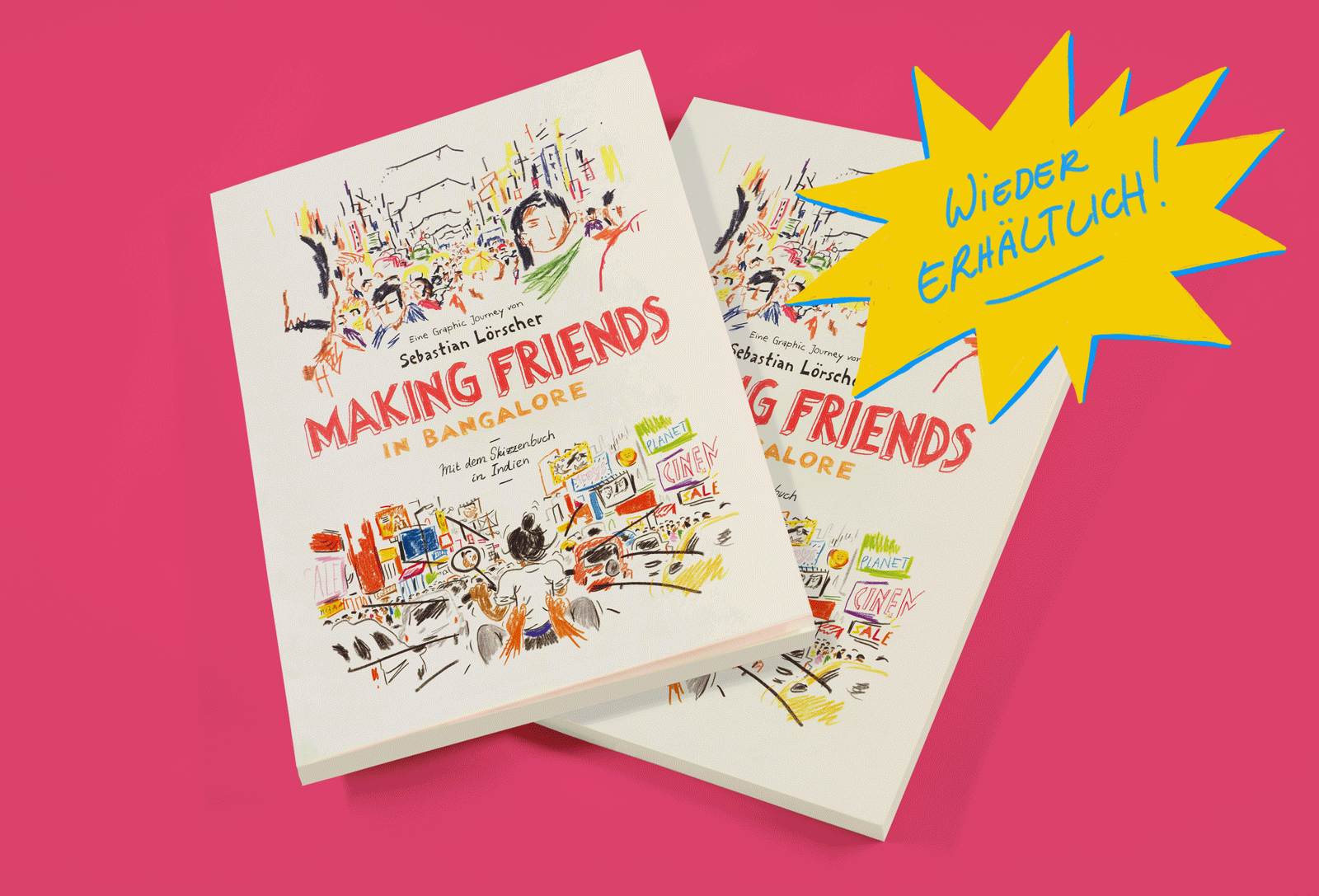
Good news: My graphic novel »Making Friends in Bangalore« is finally available again! The book was published by Büchergilde Gutenberg in 2014 and was sold out soon afterwards. Now I have printed an artist edition limited to 100 copies, which you can order for 25 € (+ shipping). Each book comes with a personal dedication.
☛ See the book
☛ Order book
On the road in Kinshasa
At the end of 2021, Goethe Institute’s Africomics project took me to Kinshasa, DR Congo. Besides the workshops I gave for Congolese comic artists, I also had a little time to explore the city with my sketchbook. With my drawings I created a short visual essay (first published on popularimages.org):
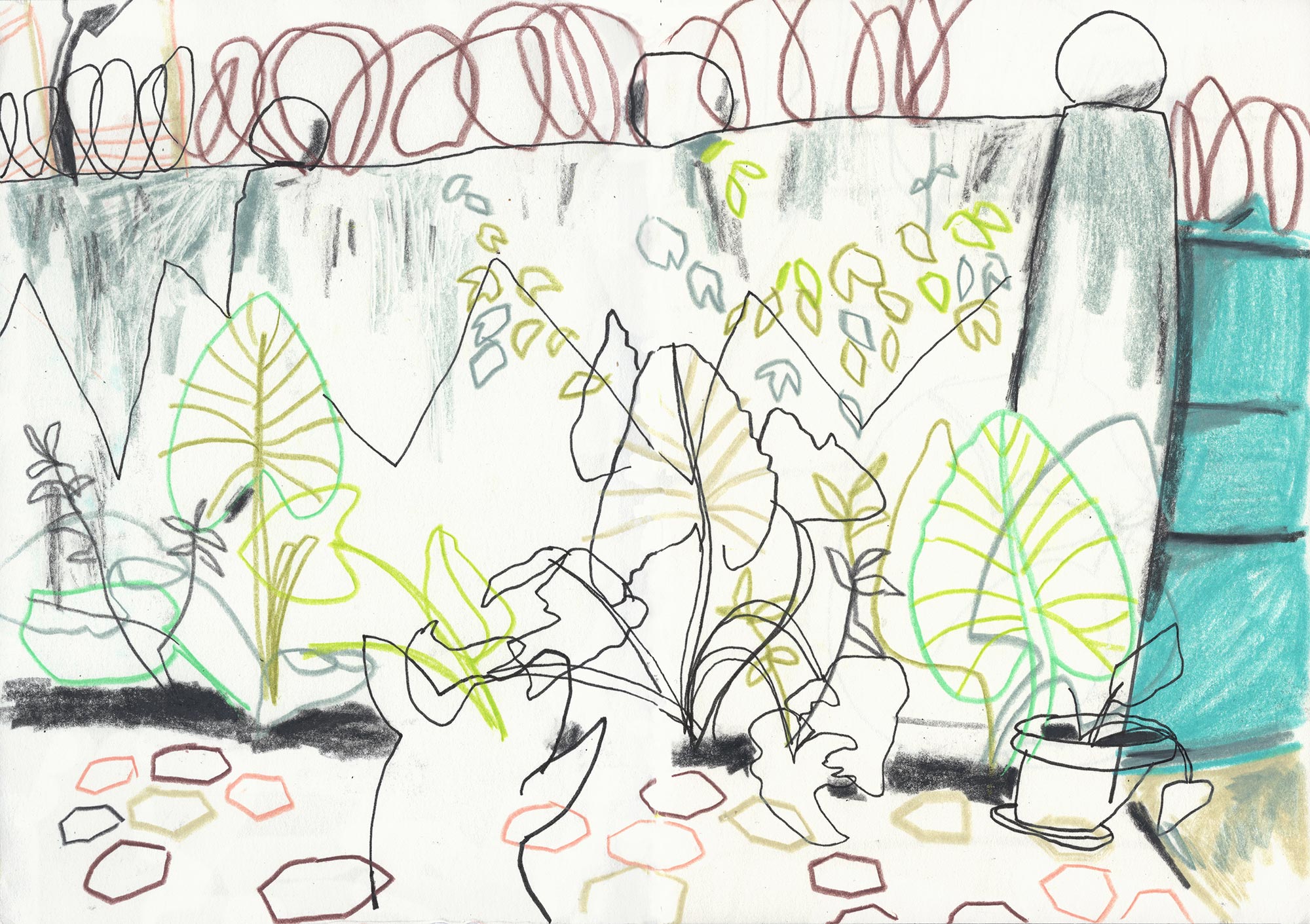
1 – Torrential rain, brown water streams knee-high through the streets, a metropolis of 15 million stands still. We arrive at Lydia and Christ’s house soaking wet. Their dog, also soaked, is happy about my visit. My first day in Kinshasa. Waiting for my clothes to dry, I make a first drawing.
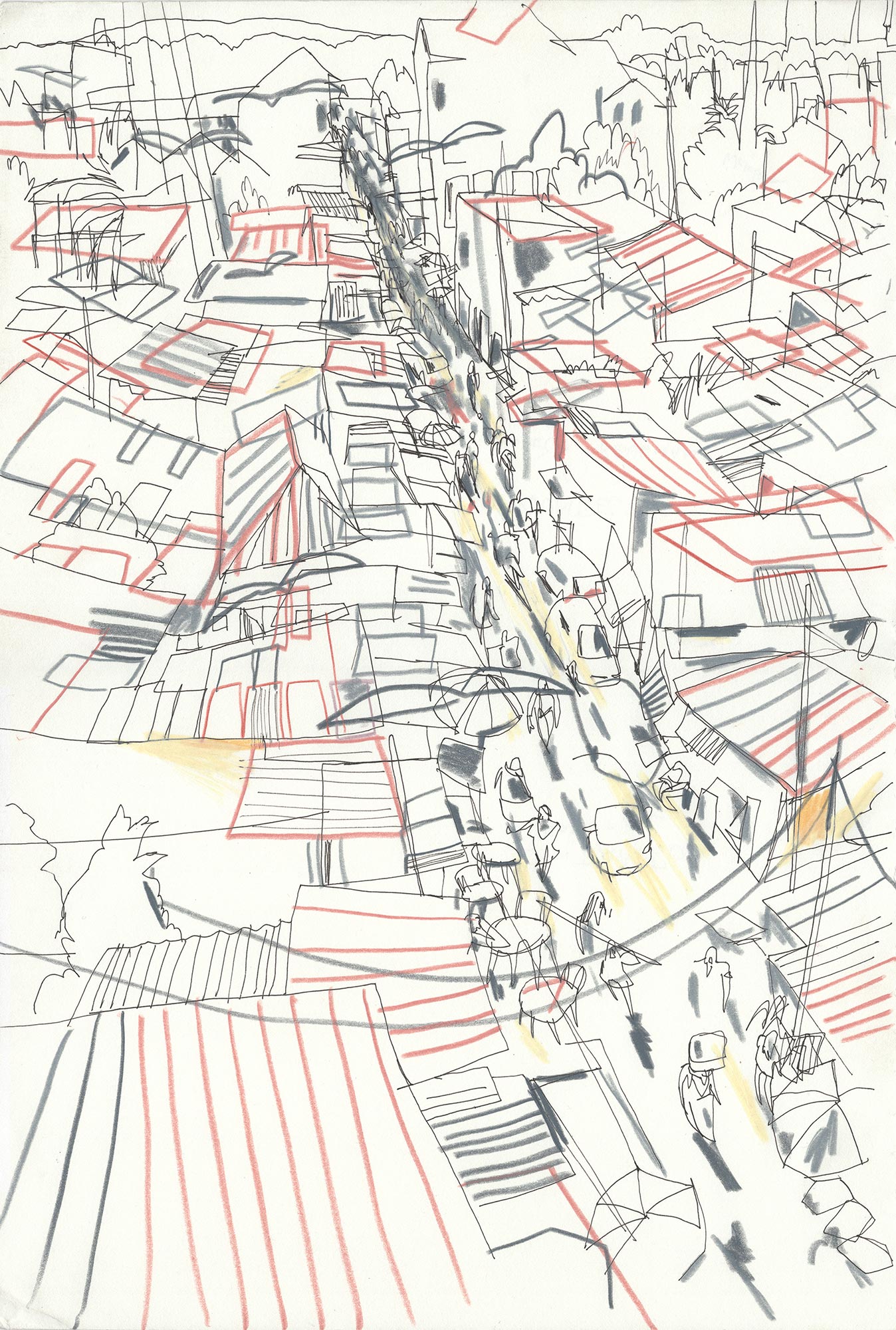
2 – The roof terrace of the office of my workshop partner Jérémie. Over there Brazzaville, down there the bawling churches, the screeching of the saws, the moaning of the soccer fans. Jérémie tells me that as a child he always wanted to die because he was told that all the big stars would be waiting for him in heaven.
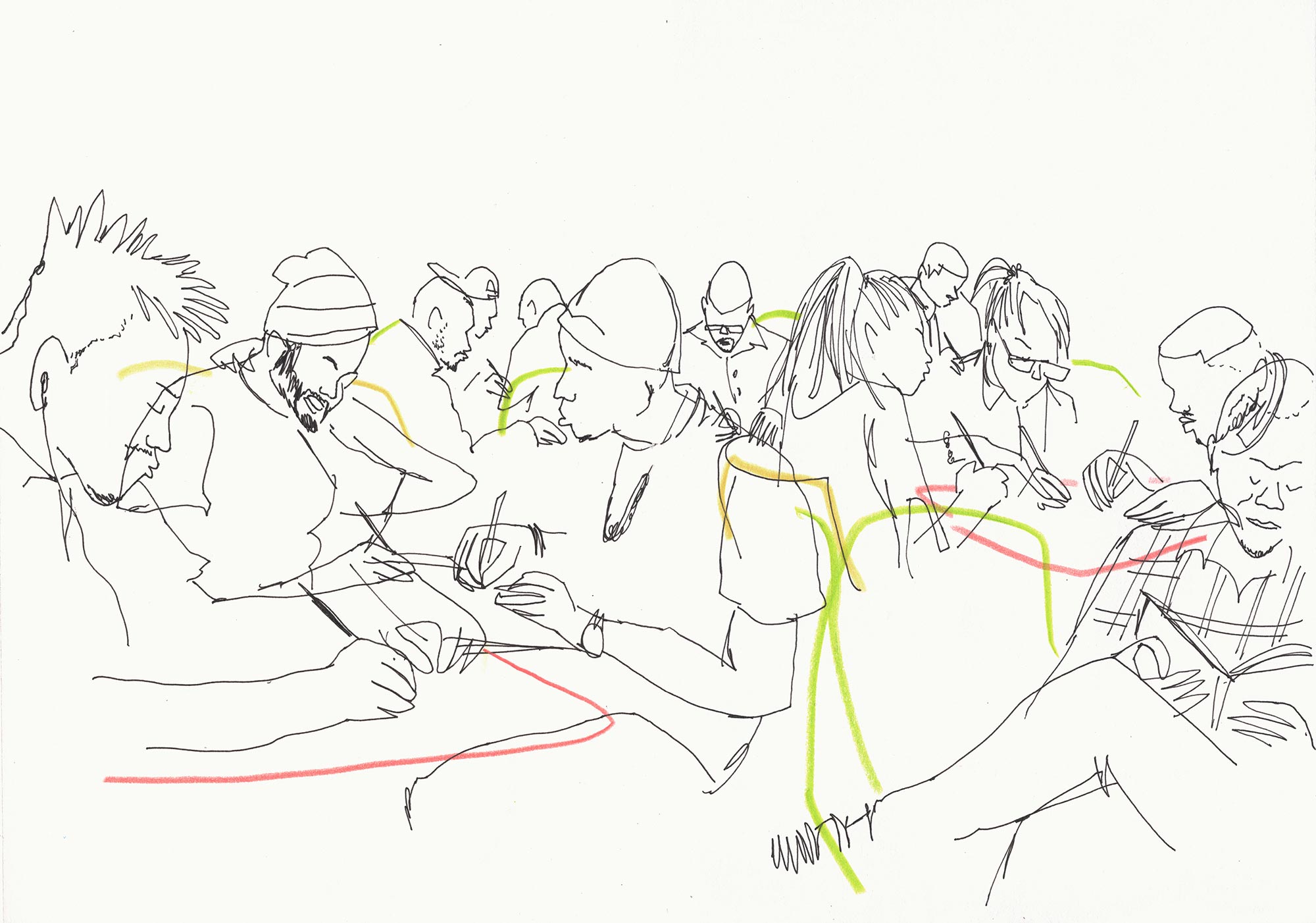
3 – Workshop, Day 1. I have never worked with a group of such well-trained illustrators. More than that, I’m impressed by the energy with which they work to make their art better known in this difficult and often not very artist-friendly environment. Once someone has drawn a new comic, they organize everything together as a group – financing, printing, distribution. No one has a publisher. »Si quelqu’un veut nous amener quelque part – bon. Sinon on avance quand-même.«*
* »If someone wants to support us – fine. If not, we can get ahead on our own.«
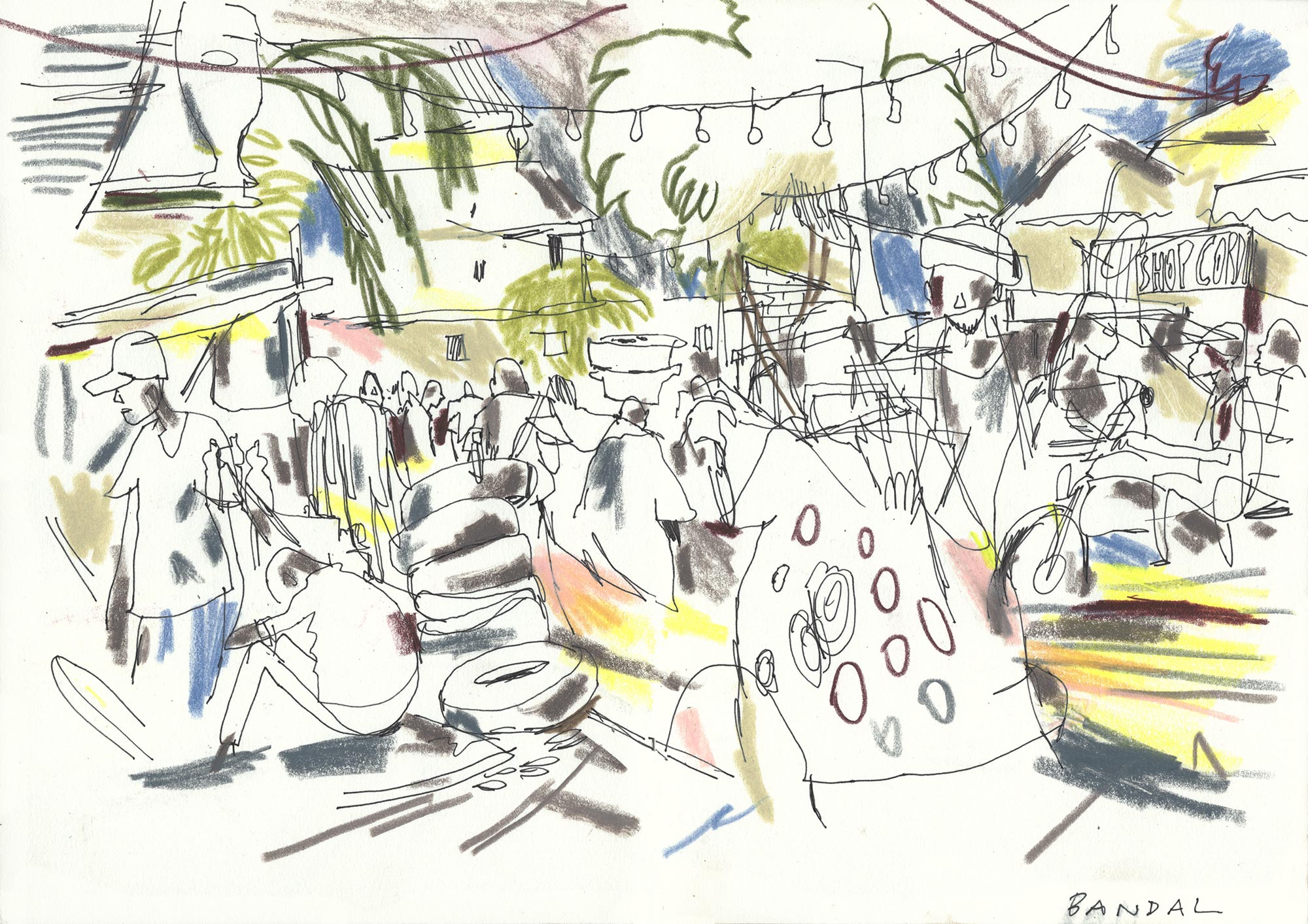
4 – Bandal, neighborhood of bars, »Kinshasa, c’est l’ambiance«*. After-workshop beers with German names (»Mützig«), the music is so loud that we have to shout into each other’s ears. The air smells of smoking coal. I eat crickets skewered on a wooden stick, I am told they taste like crabs. It’s true.
* »Life is raging in Kinshasa!«
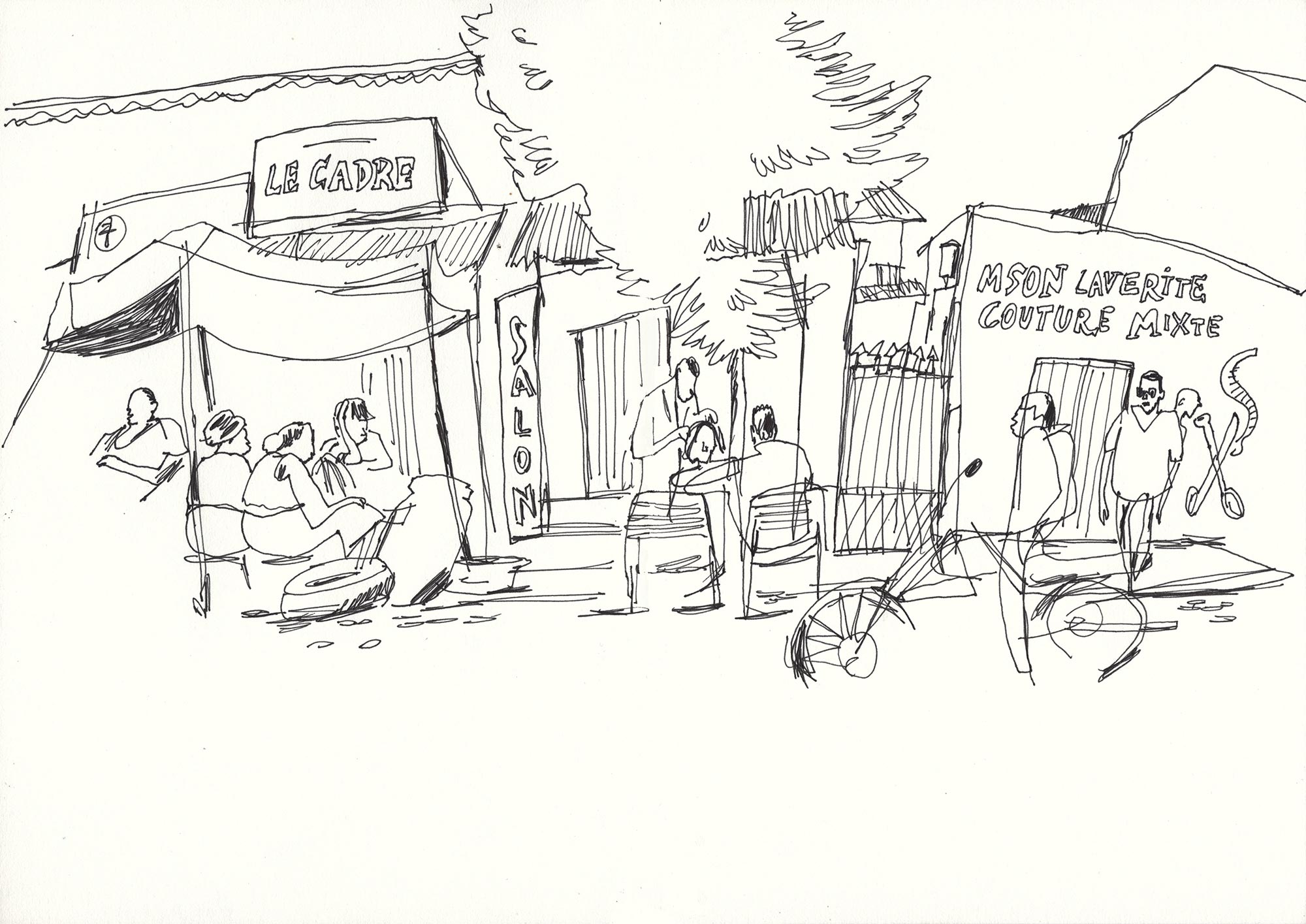
5 – »Les Congolais sont les spécialistes pour venir en retard«* says my driver Cédrick. He himself is different. Cédrick knows all the holes in the streets of Kinshasa, and although it is raining again, I arrive at the workshop on time. Everyone else is not there yet. Waiting on the doorstep, I watch the sun come out and with it life back on the streets. The store owners wipe their plastic chairs dry, the women start braiding their hair.
* »The Congolese are the specialists in being late.«
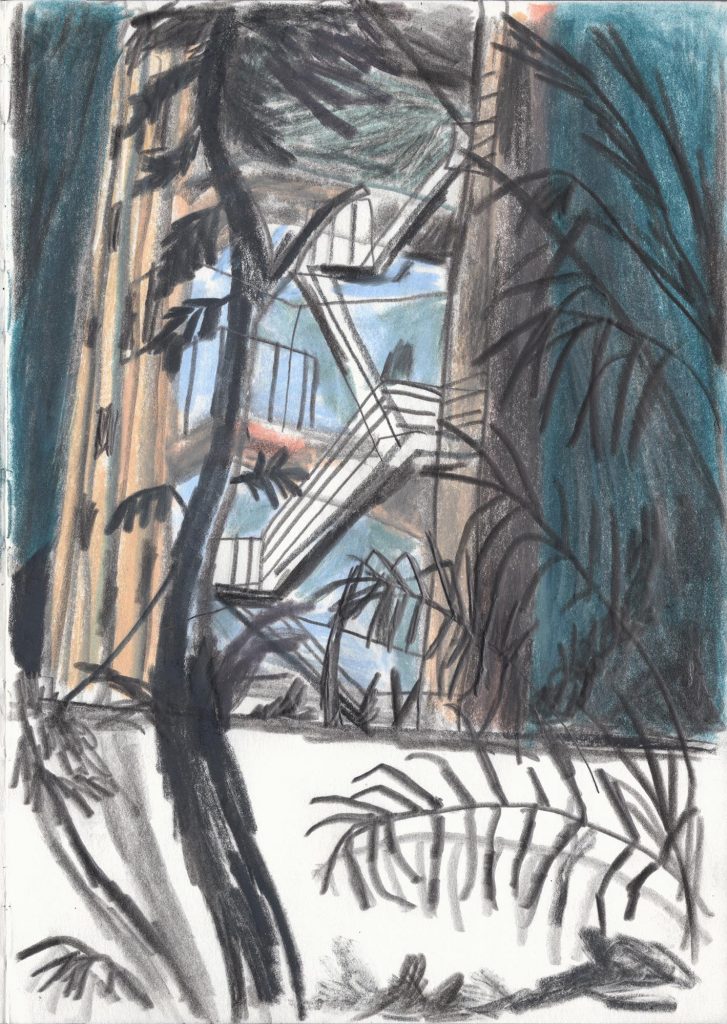
6 – How noisy it is in Kinshasa, even at night. Down in the pool, the only quiet place in town. I dive down. Only the cracking of my knee can be heard here. As long as I can, I stay down here, then I gasp for air. A cat basks in the light of the garden lights.
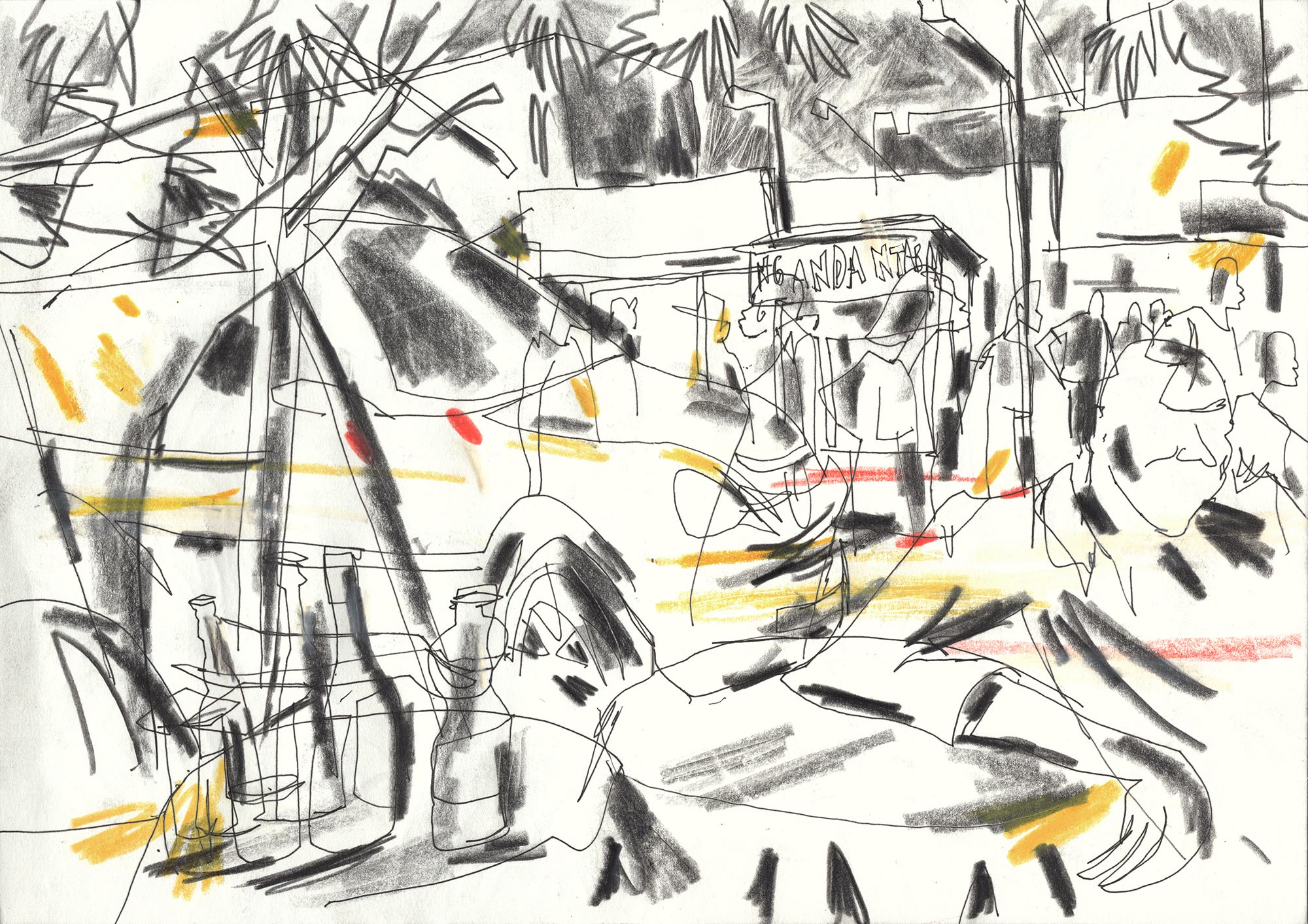
7 – The vendor pours a can full of peanuts onto the table, 15 hands grab. The nuts are moist and soft from the rain and taste wonderful. We are flat from five days of workshop, drawing, discussion, storytelling. Flat and happy, at least I am. I barely manage to join in the conversations anymore. The words in Lingala that I am taught, I forget the moment I say them. Another round, »on est ensemble!«*
* »We are together.« / »We are a team.«
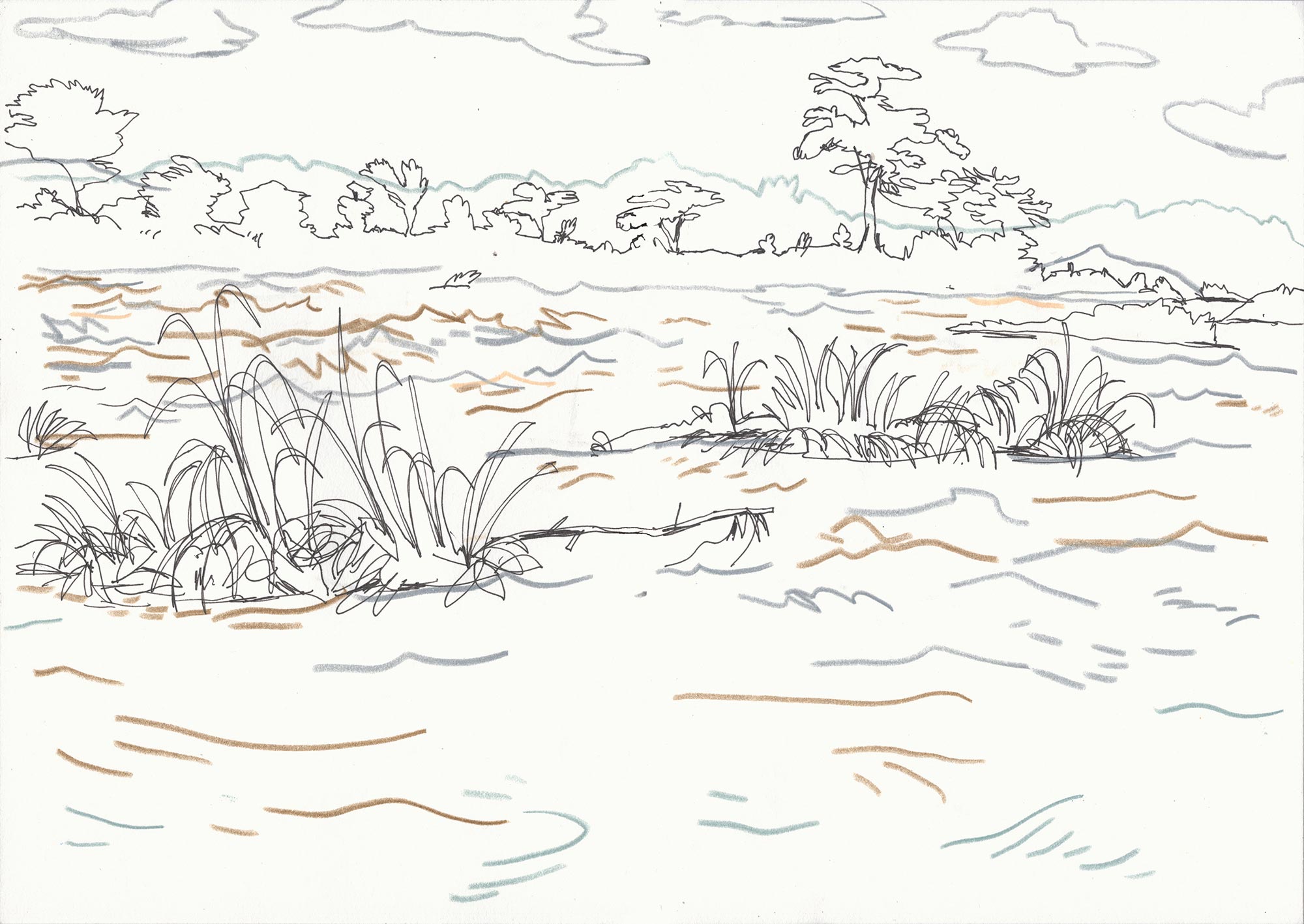
8 – Congo River, Weekend. My day off before moving on to Rwanda, to the next workshop. Fish soup in banana leaves, cassava, people keep coming to our table. An author reads from his new book, children play on self-made guitars, an old man sings us songs about love. Comedians in white make-up crack jokes in Lingala. All I understand is that they are at my expense. I laugh along anyway.
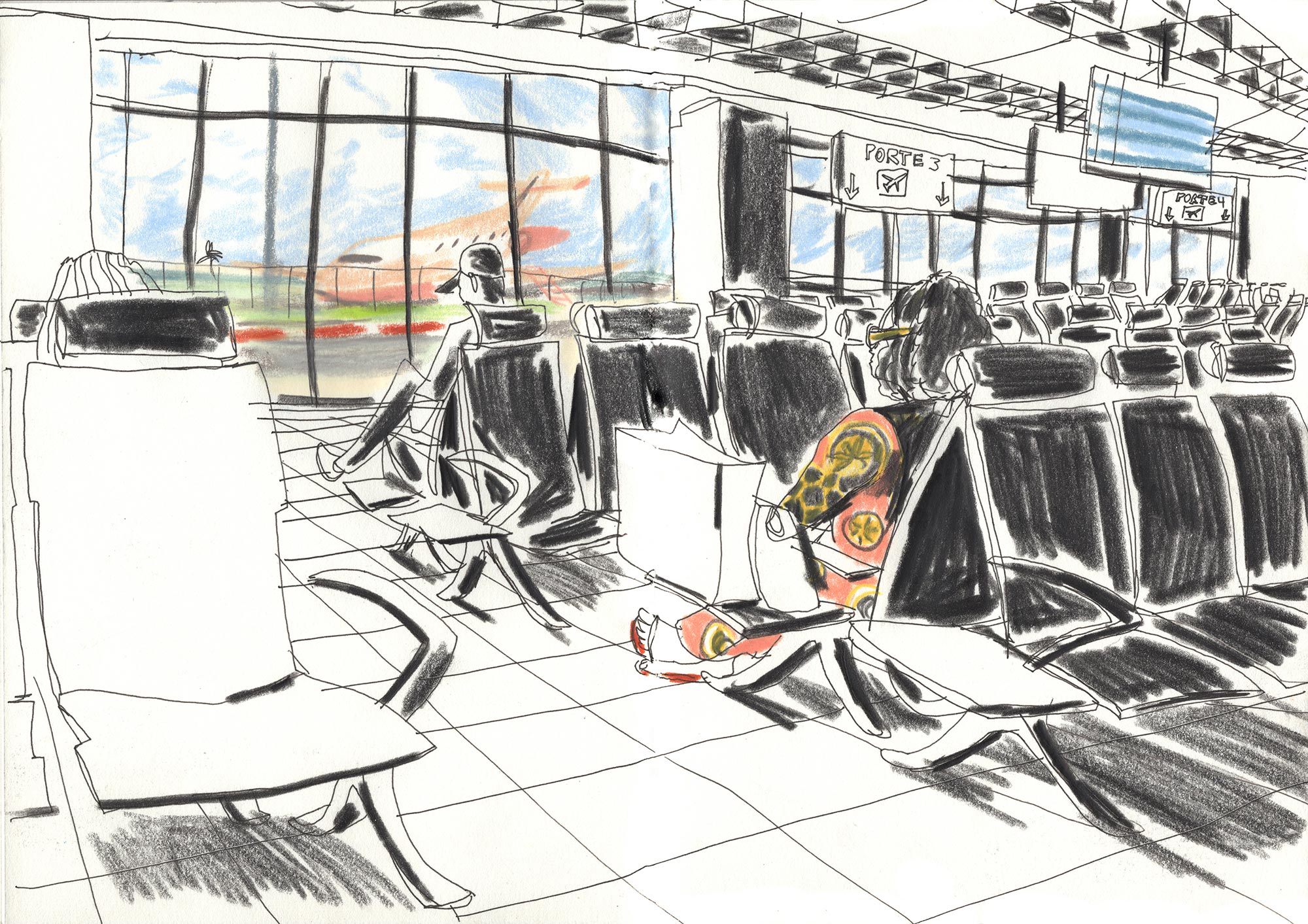
9 – »Profession?«, the woman behind the counter wants to know. She wears a uniform and has fuzzy sideburns on her cheeks. »Artiste«, I reply. »Artiste?« the woman looks at me with a look that is supposed to mean I’d better find something else. Then she stamps my passport and wishes me »bon voyage« with a sincere friendly smile.


